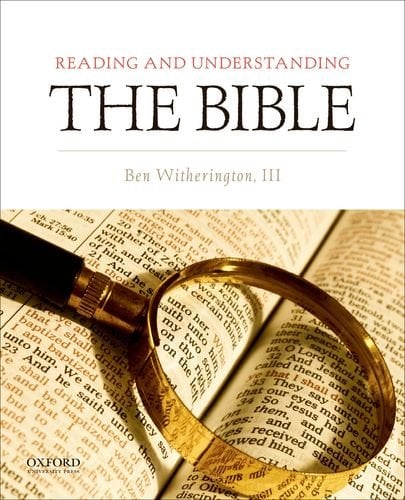Careful, analytical reading of the Bible requires some training. As I say in the book pictured above, most people need to be trained on how to do proper detailed reading of an ancient text. One way to start being able to do that is to read the book How to Read a Book. Perhaps the most helpful thing to do in this post is to describe how I read books about the Bible, as well as reading the Bible itself. First of all, I avoid doing snippets. One of the real problems in doing ‘word studies’ is that you compile a bunch of texts where the word occurs, but then don’t study them in their original contexts. You just compare and contrast the particular verses where the word occurs. But words only have meaning in contexts. It is not true that ‘in the beginning was the dictionary’. Dictionaries are simply after the fact studies of how words have been used in a variety of contexts. So, careful contextual reading of the Bible is crucial, which means in the first place the original literary context.
What I also do is I read the whole text over several times. For instance, I read the whole story of Moses’ encounter with God at the burning bush, which requires a very careful reading of both Exodus 3-4. A warning, the chapter and verse divisions in the Bible help us find things, but they are later additions to the text by Archbishop Langton, who had far too much time on his hands in the early middle ages. There is nothing inspired about the chapter and verse divisions. You should read the text on the basis of sense units, or complete stories. Of course when you are reading something like Proverbs, what you do is read a selection of aphorisms, and try and figure out why these proverbs were clustered together.
Having read the text carefully several times, and done some underlining and starring in the margins (yes it’s o.k. to mark up your Bible, the paper is not inherently sacrosanct, only the thoughts and ideas and teachings). Then you begin to ask some questions about the text. One of the real keys to understanding is knowing how to ask good questions of the text. For instance, in the story about Moses at the burning bush, who is it that is actually speaking to Moses? Is it God, directly? Or is it God through one of his FedEx messengers, such as ‘the angel of the Lord’? Does it matter? Why does Moses seem to be making excusing and trying to pass the buck? Are you buying his argument that he is ill prepared for the job of confronting Pharaoh liberating the Hebrew slaves, after he was educated in the palace in Egypt (see what Stephen says about Moses’ education in Acts 7)? What was the relationship between Moses and his brother Aaron? What roles would each play in the liberation? Why did Moses need miraculous demonstrations to convince him? What does this story reveal about Moses’ flaws? You begin to get the feel for the kind of questions one should ask of the text. And you don’t need to be afraid to do it, as the Bible has stood up to the most searching criticisms of the greatest minds over the ages, and is still God’s Word. One of the things I most love about the Bible is it is painfully honest about the flaws and foibles even of its hero figures. The only exception in the whole Bible is Jesus.













